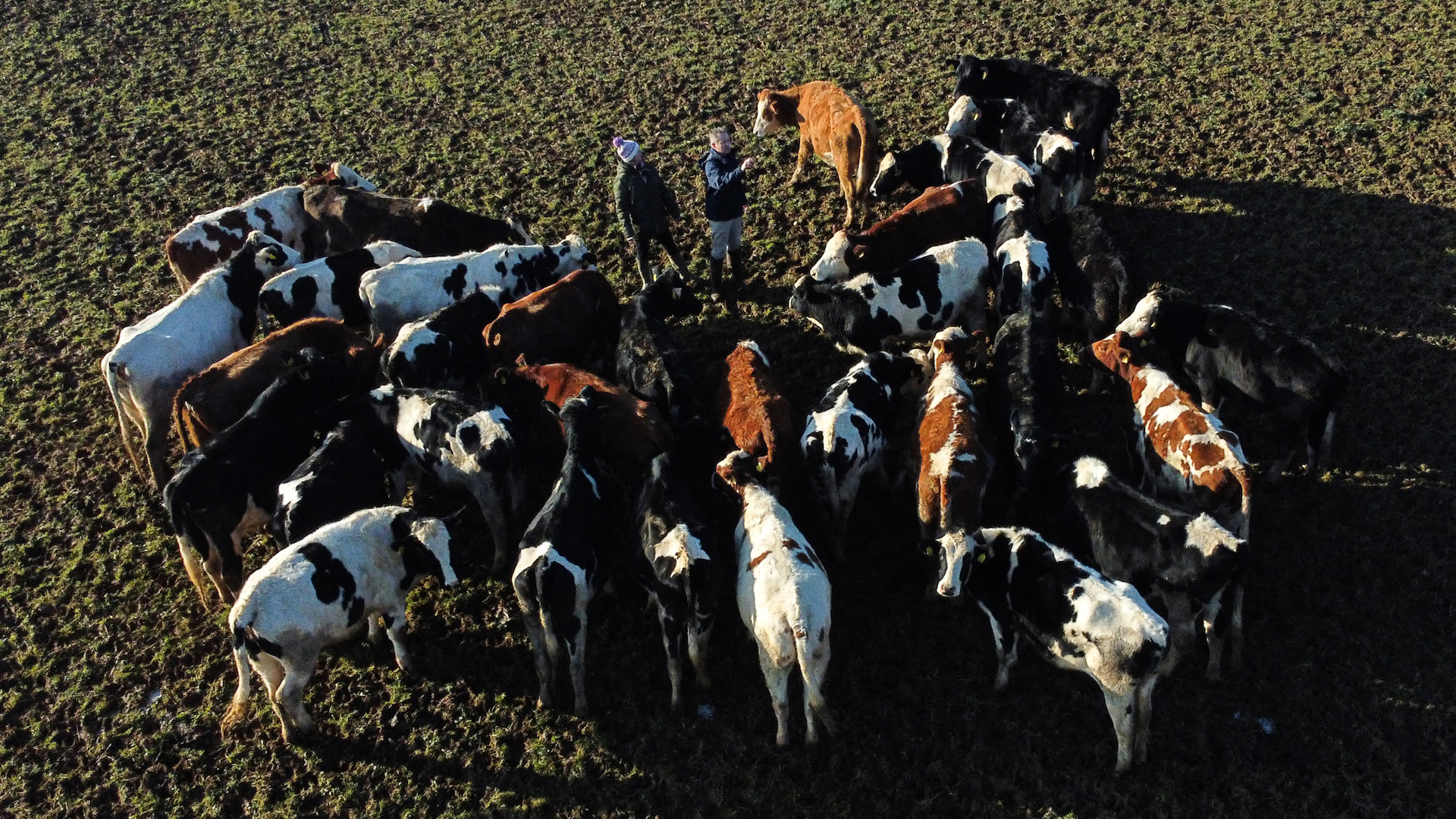
COW FLATUENCE COULD BE TAXED IN A U.S. STATE FOR THE FIRST TIME EVER-
COMING AS A POTENTIAL RESULT OF A NEW BILL INTRODUCED THIS WEEK IN THE WASHINGTON STATE LEGISLATURE.
THE BILL, SPONSORED BY SEVERAL DEMOCRATIC STATE LAWMAKERS, IS CURRENTLY BEING REVIEWED BY WASHINGTON’S HOUSE ENVIRONMENT & ENERGY COMMITTEE.
IF ENACTED, IT WOULD REQUIRE DAIRY FARMS AND FEEDLOTS TO REPORT THEIR METHANE EMISSIONS ANNUALLY-
STARTING THE YEAR AFTER BEING SIGNED INTO LAW.
THE LEGISLATION SAYS THAT GATHERING THIS DATA WILL HELP THE STATE BETTER UNDERSTAND THE AGRICULTURAL SECTOR’S CONTRIBUTION TO GREENHOUSE GAS LEVELS.
BUT THE COLLECTION OF THIS INFORMATION MAY ALSO ULTIMATELY LEAD TO LOCAL FARMERS INCURRING ADDITIONAL COSTS ON THE EMISSIONS CREATED BY THEIR LIVESTOCK.
THAT’S BECAUSE OF THE WASHINGTON STATE CLIMATE COMMITMENT ACT-
A LAW PASSED IN 2021 THAT TAXES ANY BUSINESS THAT PUTS OUT MORE THAN 25,000 METRIC TONS OF CO2-
THE SAME EMISSIONS GENERATED BY DRIVING ALMOST 6,000 GASOLINE POWERED CARS FOR A YEAR.
SO, IF THE STATE’S DAIRY FARMS AND FEEDLOTS ARE EXCEEDING THAT LEVEL, THEY COULD BE PENALIZED WITH A TAX UNDER WASHINGTON LAW.
SOME, LIKE REPUBLICAN STATE REPRESENTATIVE JOE SCHMICK-
ARE RAISING CONCERNS ABOUT THAT.
“So, if they find that there was sufficient methane equivalent to 25 thousand metric tons of CO2 emissions, these facilities would likely come under the Climate Commitment Act as covered entities. You’re asking the growers to pay more taxes, more regulation, in a time when you have record low commodity prices and their costs are astronomical right now. It’s just wrong.”
THIS COMES AFTER SIMILAR LEGISLATION WAS ADOPTED BY DENMARK IN NOVEMBER.
THAT LAW, THE WORLD’S FIRST TAX AIMED AT AGRICULTURAL EMISSIONS, IS SET TO TAKE EFFECT IN 2030.
FOR STRAIGHT ARROW NEWS, I’M JACK AYLMER.











